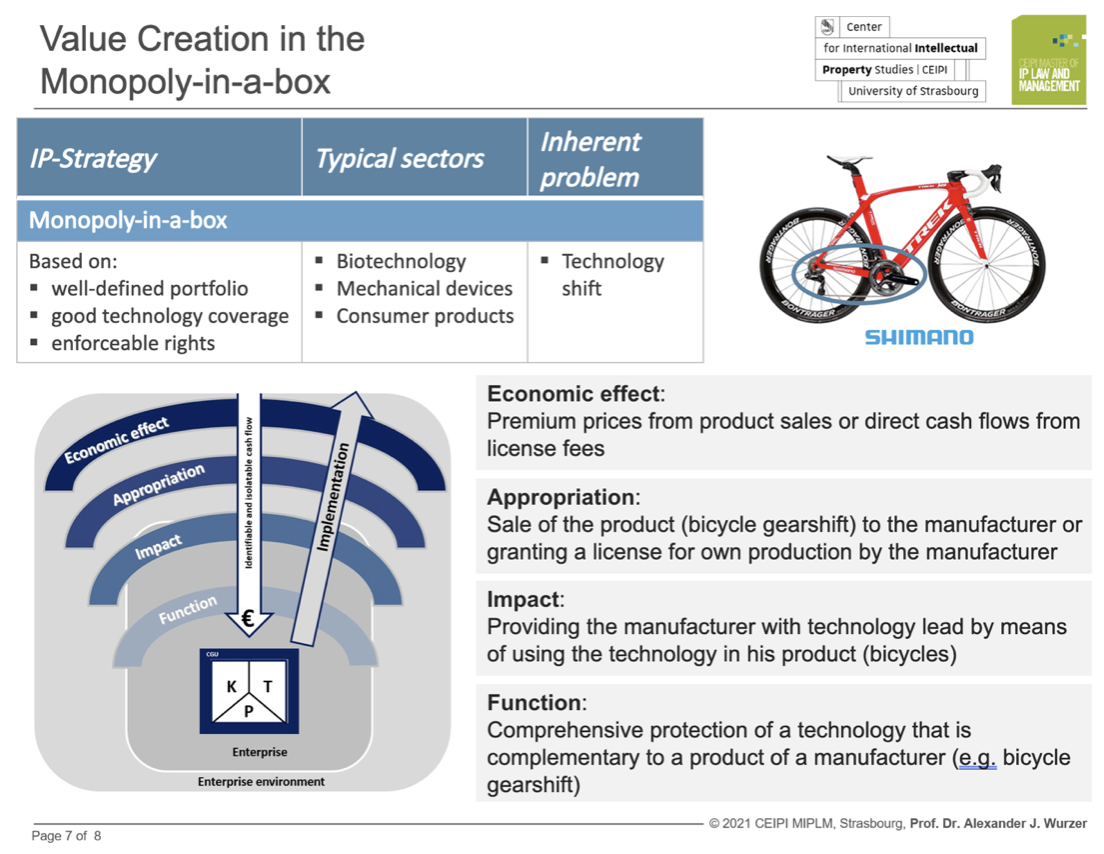Digital Patent Impacts in Digital Business Models
In a competitive digital business environment, digital patents are vital for maintaining the exclusivity position in eco-systems. The term digital patents originates from the economic value of digital patents in digital eco-systems. On the other hand, it derives from the context of the development of digital business models within the development of the Internet of Things (IoT) and Industry 4.0. Therefore, it refers to exclusive elements of digital business models which are economically relevant. The strategy of how to design and implement digital patents in digital business models can be learned in the Certificate course on “IP and Industry 4.0” at CEIPI. The next course starts on 01.10.2021.
One of the examples for the role of IP within a business model strategy is the pay-per-use model. The model generates profit by customers paying a fee for the use of the service. An example for the implementation of this business model strategy is the German manufacturing company Winterhalter, they offer their customers in the gastronomy industry a flexible pay per wash solution, so that their customers don’t need to invest a lot into a whole new dishwasher.
Cannot open the Video? Please click: https://youtu.be/I0qa8SuBr40
Another model for the role of IP within a business model strategy is the ingredient branding approach. This is described as a special case of co-branding, where two brands owned by different companies are combined. Ingredient branding uses the monopoly-in-a-box IP strategy, by acquiring patents, trademarks, design rights, and trade secrets to define a value for branding partners.
An example for value creation in the monopoly-in-a-box strategy is explained in the Shimano case study in the MIPLM.




